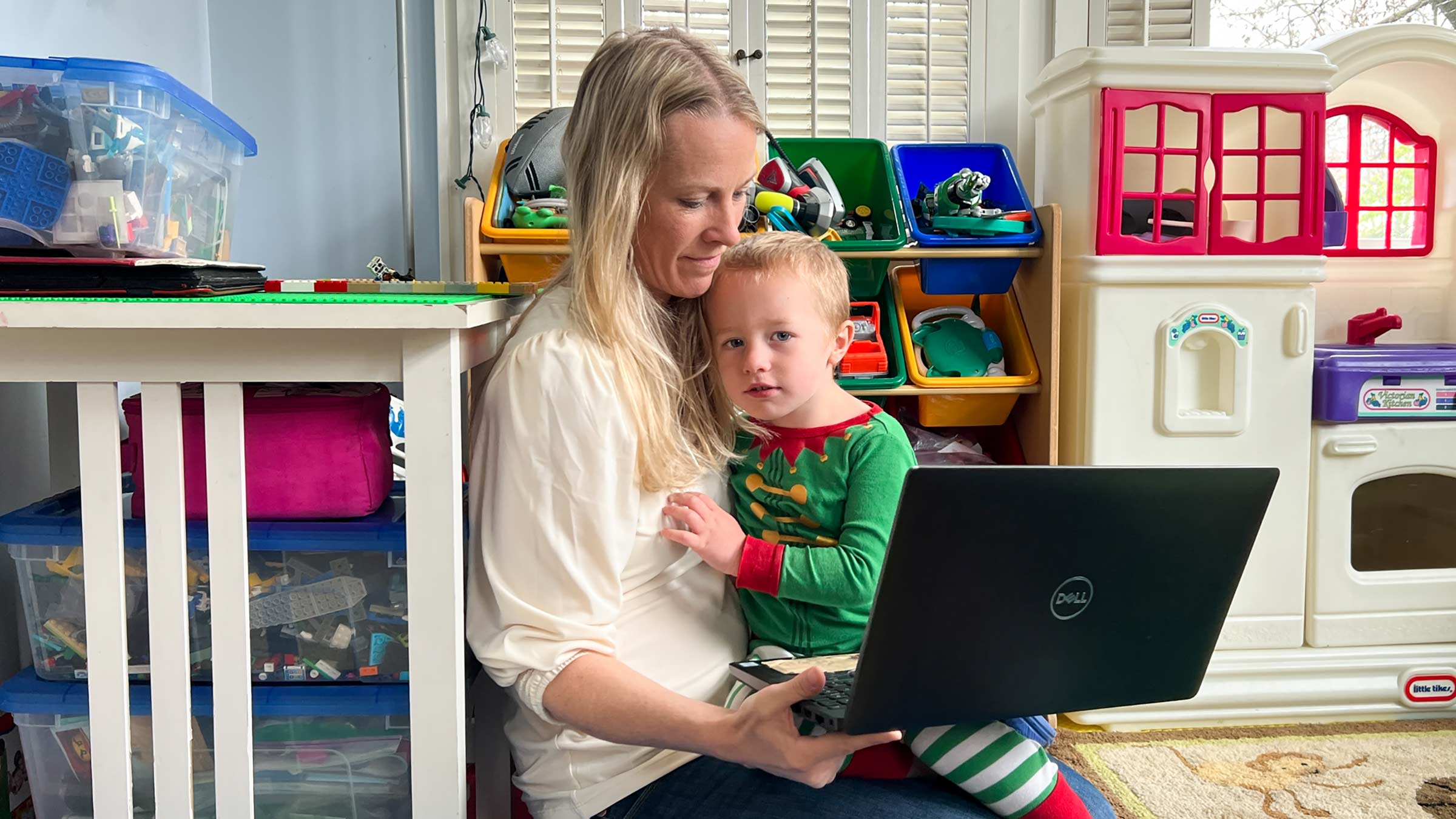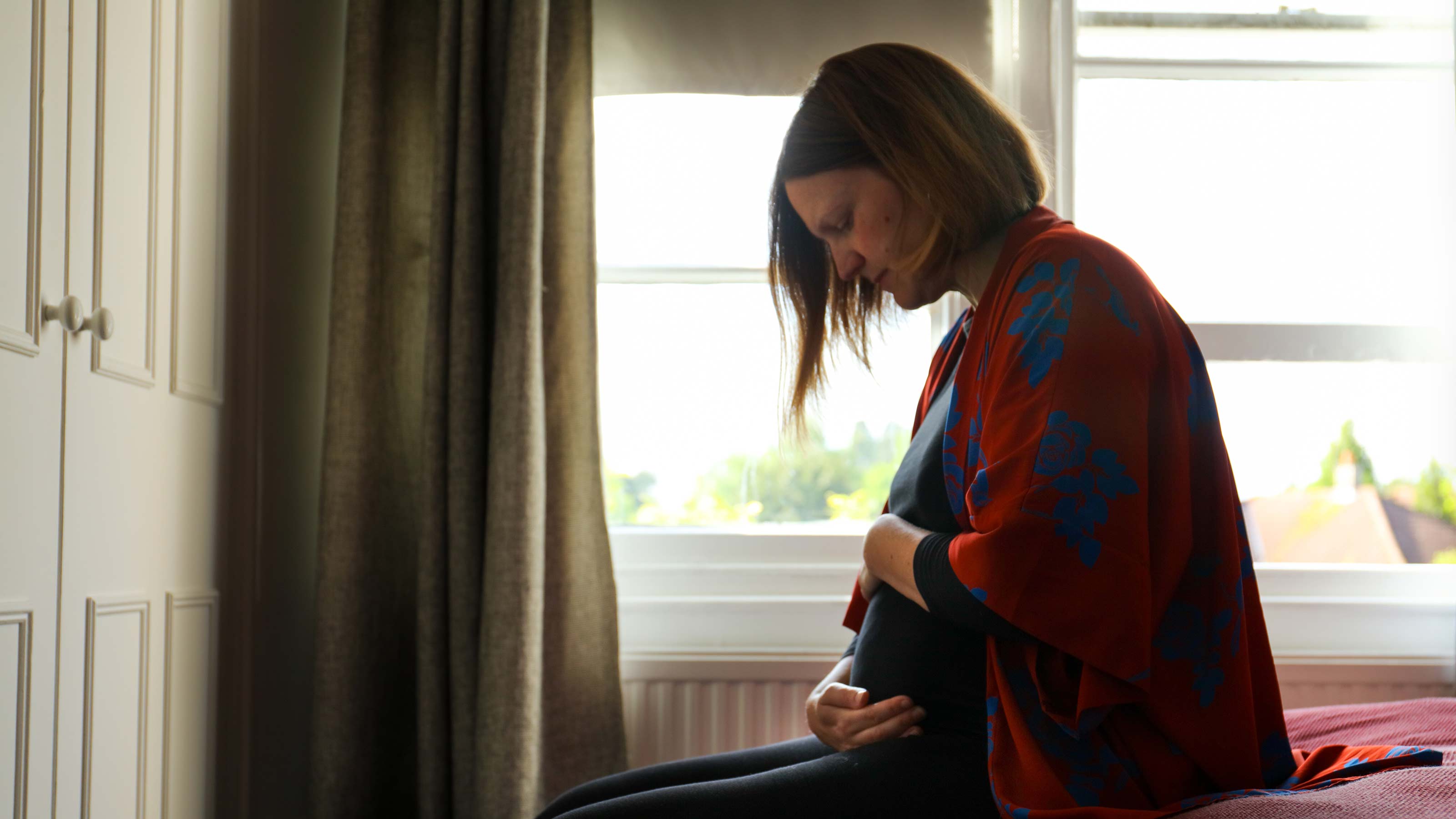
From a parent to other parents: Answers to your questions about burnout and taking care of yourself.
A new report from The Ohio State University Office of the Chief Wellness Officer and the College of Nursing reveals that 66% of working parents have experienced burnout during the COVID-19 pandemic — and that it can have dire consequences for parents and their kids.
“Pandemic Parenting: Examining the Epidemic of Working Parental Burnout and Strategies to Help” was written for parents to help them measure their extent of burnout, understand how burnout affects parents and children and develop strategies to reduce stress and protect the mental health of their families.
The pandemic has overwhelmed working parents already stressed by the responsibilities of full-time work, child rearing and school and extracurricular activities. If you feel this way, you’re not alone.
After experiencing burnout myself and realizing it affected millions of other parents, I teamed up with Bernadette Melnyk, PhD, APRN-CNP, FAAN, Ohio State’s vice president for health promotion, university chief wellness officer and dean of the Ohio State College of Nursing, to create a valid and reliable working parent burnout scale and write the report.
Here, I address some questions about burnout and ways to address it.
- Question What is parental burnout?
-
Answer
Parents experience burnout when stress and exhaustion become chronic and overwhelm their ability to cope and function. It can leave you feeling worn out — physically, mentally and emotionally — and detached from your children.
I want other working parents to know you’re not the only one who’s feeling this way. There are millions of us in the same boat.
And it’s really no wonder. “Pandemic Parenting” has shown us that the pandemic has made working parents especially vulnerable to burnout, wondering what each day will bring as they manage jobs on top of unpredictable child care or schooling responsibilities.
For me, I was doing a lot of work between the hours of 8 p.m. and 1 or 2 in the morning. And I still expected myself to perform well at my job and put meals on the table and clean the house. The cycle is very vicious, because there’s no break in it.
We’re not going to know the full implications of our pandemic experiences for a while. But the report has shown that burnout can lead to mental health problems and increased alcohol use in adults, as well as punitive behaviors, such as yelling at or spanking children. Burnout also impacts children, who might internalize problems, such as anxiety and depression, act out or be unable to concentrate.
- Question The pandemic is winding down, things are getting back to normal. Why do I still feel burned out?
-
Answer
Even though we seem to be out of this acute phase of the pandemic, parents are still really living in this world. Even though kids are back at school, most of the masks are off and children are getting sick. Quarantine and sniffles mean kids could still be at home, so it’s difficult to plan. We’re living in a world where we’ve lost control and have to be prepared to roll with whatever life throws at us, wondering “What’s the day going to bring? What’s the hour going to bring?”
- Question How do I know if I’m burned out? If I am, what can I do?
-
Answer
There’s a 10-item scale you can fill out to reveal your level of burnout and determine what kinds of strategies might help to manage it. It was used for the “Pandemic Parenting” survey and is available in the report. I encourage parents to use it. It’s so important to identify when you’re feeling burnout so you can do something before you start becoming that parent you don’t want to be.
Examine your resources and your stressors and try to plan ways in which you can increase the resources you need and decrease your stressors when able. When you’re exhausted and feel like you just can’t do another thing, you can look back on the plan and say, “OK, here’s one thing I can do today to help myself.”
And, remember, you can’t do it all.
Doing the research for this report helped me look at my resources and my stressors to try for some balance. And it taught me to say “no” (I used to say “yes” to everything) and to work to prevent myself from feeling guilty.
Another important way I’ve found to cope is to connect with people I trust, especially other parents who have kids around the same age as my kids and who share the same experiences. The value of these connections can’t be overemphasized. Try to develop a network where you can have fun, laugh at circumstances and vent.
You can also find details on other strategies in the “Pandemic Parenting” report. These are things you can do right now to help alleviate burnout, such as practicing good self-care, being kind to yourself and building mental resiliency and coping skills.
Most importantly, ask for help when you need it, especially if your burnout is affecting your ability to function or concentrate. Reach out to your primary care provider or another mental health professional.
If you’re in need of emotional support, thinking about suicide or concerned about a family member or friend, the National Suicide Prevention Lifeline is available 24/7 at 800-273-8255.
- Question Why is it so hard for parents to take care of themselves?
-
Answer
First, there’s a lot of parent shaming. We see things on social media and think, “Oh my gosh, these parents are doing all these awesome things. My kids are watching TV and eating mac and cheese every night.” People feel isolated and believe everyone else is doing a great job as a parent while they’re failing.
And parents don’t necessarily realize they need to take care of themselves. They don’t feel depressed, they don’t feel like they have anxiety. The first time I heard the term “parental burnout,” I thought, “That’s it. That’s what I have.” Being able to identify what it is can help convince you to take the preventive measures to help yourself and your kids.
- Question My kids are grown. How can I help a younger family experiencing burnout?
-
Answer
If you’re able to identify parental burnout in someone you know, lend a listening ear. And, if you have the capacity and resources, offer to take their kids for the afternoon so they can have a minute to breathe. I think it would be especially helpful for people who have no one else to turn to.
- Question In the report, you refer to working parental burnout as an epidemic and a major public health issue. What does that mean?
-
Answer
So many people are experiencing some degree of burnout — not just a small subset of people — and the long-term repercussions can be damaging for both parents and children. This makes it a high priority to address from a public health standpoint. Further, there are a lot of preventive health measures and targeted interventions. So, investing in the right strategies could stop the trajectory we’re on and improve outcomes. Raising children is a societal responsibility. Doctors, nurse practitioners, communities, institutions and corporations all have a role to play in helping families thrive.

Learn more about working parental burnout, rate your level of burnout and find strategies to help your family thrive
Download the “Pandemic Parenting” report from the Office of the Chief Wellness Officer and the College of Nursing.
Download the report




